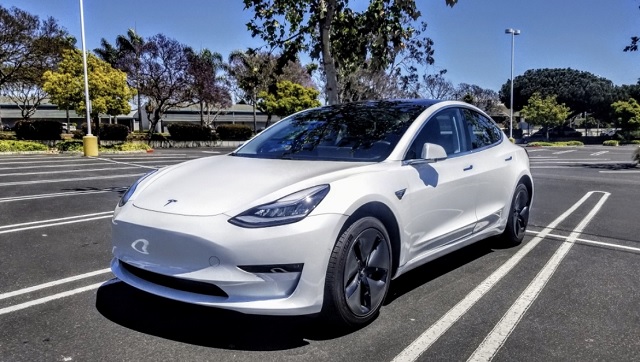An Interesting Take on Electric Cars from a Conversation

If electric cars do not use gasoline, they will not be paying a gasoline tax on every gallon sold for automobiles, which was enacted to maintain our roads and bridges. They will use the roads and bridges, but will not pay for their maintenance!
As an engineer I love electric vehicle technology However, I have been troubled by the fact that the electrical energy to keep the batteries charged has to come from the grid, and that means more power generation and a huge increase in the distribution infrastructure. Whether generated from coal, gas, oil, wind or sun, installed generation capacity is limited.
In case you were thinking of buying hybrid or an electric car.
Ever since the advent of electric cars, the REAL cost per mile of those things has never been discussed. All you ever heard was the mpg in terms of gasoline, with nary a mention of the cost of electricity to run it.
Electricity has to be one of the least efficient ways to power things, yet they’re being shoved down our throats. Glad somebody finally put engineering and math to paper.
If you really intend to adopt electric vehicles, you will face certain realities. For example, a home charging system for a Tesla requires 75 amp service. The average house is equipped with 100 amp service. On a small street (approximately 25 homes), the electrical infrastructure would be unable to carry more than three houses with a single Tesla each. For even half the homes to have electric vehicles, the system would be wildly over-loaded.
This is the elephant in the room with electric vehicles. Our residential infrastructure cannot bear the load. So, as our genius elected officials promote this nonsense, not only are we being urged to buy these things and replace our reliable, cheap generating systems with expensive new windmills and solar cells, but we will also have to renovate our entire delivery system! This later “investment” will not be revealed until we’re so far down this dead end road that it will be presented with an ‘OOPS…!’ and a shrug.
If you want to argue with a green person over cars that are eco-friendly, just read the following. Note: If you ARE a green person, read it anyway. It’s enlightening.
Eric test drove the Chevy Volt at the invitation of General Motors and he writes, “For four days in a row, the fully charged battery lasted only 25 miles before the Volt switched to the reserve gasoline engine.” Eric calculated the car got 30 mpg including the 25 miles it ran on the battery. So, the range including the 9-gallon gas tank and the 16 kwh battery is approximately 270 miles.
It will take you 4.5 hours to drive 270 miles at 60 mph. Then add 10 hours to charge the battery and you have a total trip time of 14.5 hours. In a typical road trip your average speed (including charging time) would be 20 mph.
According to General Motors, the Volt battery holds 16 kwh of electricity. It takes a full 10 hours to charge a drained battery. The cost for the electricity to charge the Volt is never mentioned, so I looked up what I pay for electricity.
I pay approximately (it varies with amount used and the seasons) $1.16 per kwh. 16 kwh x $1.16 per kwh = $18.56 to charge the battery. $18.56 per charge divided by 25 miles = $0.74 per mile to operate the Volt using the battery. Compare this to a similar size car with a gasoline engine that gets only 32 mpg. $3.19 per gallon divided by 32 Mpg = $0.10 per mile.
The gasoline powered car costs about $25,000 while the Volt costs $46,000 plus. So the Canadian Government wants loyal Canadians not to do the math, but simply pay twice as much for a car, that costs more than seven times as much to run, and takes three times longer to drive across the country.
WAKE UP NORTH AMERICA!
©Fred Brownbill. All rights reserved.
RELATED VIDEO: The Truth Behind Electric Cars EXPOSED
RELATED ARTICLES:
Driving An Electric Car May Be The Worst Thing You Can Do For The Environment
Replacing The Battery Pack On A VW E-Golf Costs More Than You Think


Leave a Reply
Want to join the discussion?Feel free to contribute!